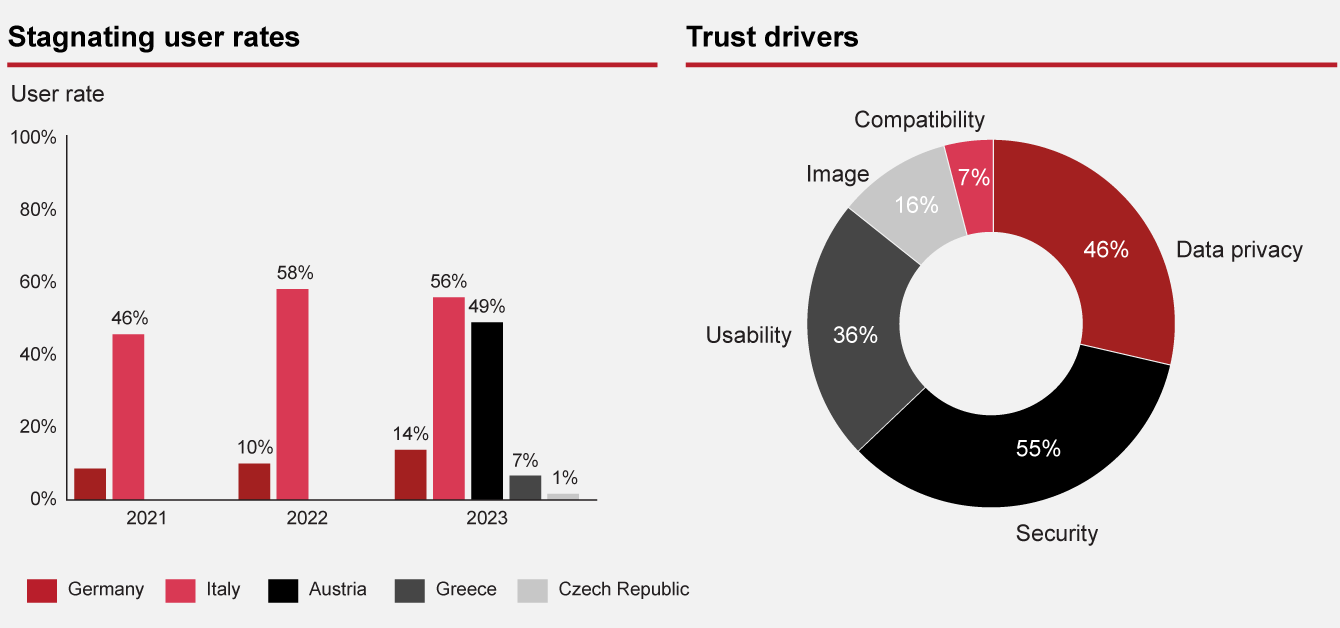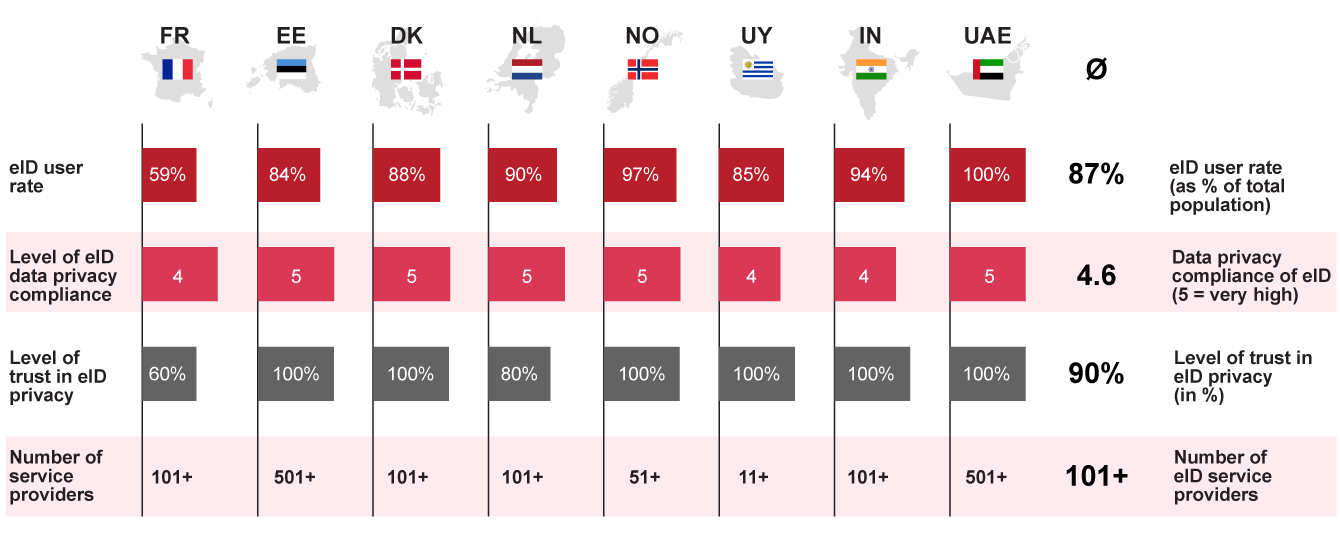The global state of adoption and level of data privacy
In an increasingly digitized world, technologies such as the eID (online identification function) are gaining in importance. eID enables the use of digital public services as well as private services that require identification. However, citizens and service providers vary considerably in their adoption of the respective eID solutions. Some countries regard as pioneers in this technology, while others still struggle to introduce it.
This global benchmarking report covers the adoption and level of data protection of the respective eID solution in eight countries around the world. The countries covered in this study were selected due to the availability of data and local experts. Furthermore, it explores the correlation between adoption and the level of data privacy protection. This report aims to find international standards and best practices for both the public and private sector.
Key findings
- eID technology is gaining in importance, but the level of adoption varies
- Global eID champions focus on data privacy and service offering
- Data privacy compliance is the foundation of trust
- eID laggards should urgently tackle data privacy
Data privacy compliance to boost eID user rates?
eID is becoming more important as it allows people to use digital services that need identification. However, the number of users and service providers for this technology is not growing. A recent survey1 in Germany found that data protection and security are the most important factors for building trust in technology.
This discovery is significant. Another study2 from Germany found that lack of trust is one of the top 5 reasons for not using eID. Moreover, the German government's digital strategy3 also points to data privacy as the foundation for trust.
1 IDnow Digital Identity Index 2023 Germany; 2 eGovernment MONITOR 2023; 3 Digital Strategy of Germany (2023), p.11
Overview of the eID country report results
The results from most of the surveyed countries confirm their reputation as global champions in eID technology:
The eID frontrunners take various technical and other measures to comply with data privacy requirements. Additionally, the results show that data privacy compliance correlates positively with trust levels, which in turn increases user rate.
Half of the countries surveyed are strongly dedicated to protecting data privacy and building trust. While administrators should prioritize data privacy to build trust, they should also design respective eID solutions in a compliant way.
When analyzing countries with high levels of trust and high user rates, it is important to consider additional factors. One of these factors is the number of service providers. This will help ensure a comprehensive examination.
Best practices for successful eID solutions
To establish a secure and user-friendly eID solution, four best practices are critical to success:
Data protection and privacy as critical success factors
Data protection and privacy have become a critical element in customer and user trust. However, a lack of necessary data protection awareness can lead to the failure of a product launch and cause lasting damage to trust and accountability. We consider the following three recommendations as critical success factors to establish data protection and privacy:
Niklas Kelbch, Lukas David Hoffmann and Malien Zehnpfenning also contributed to this report.





